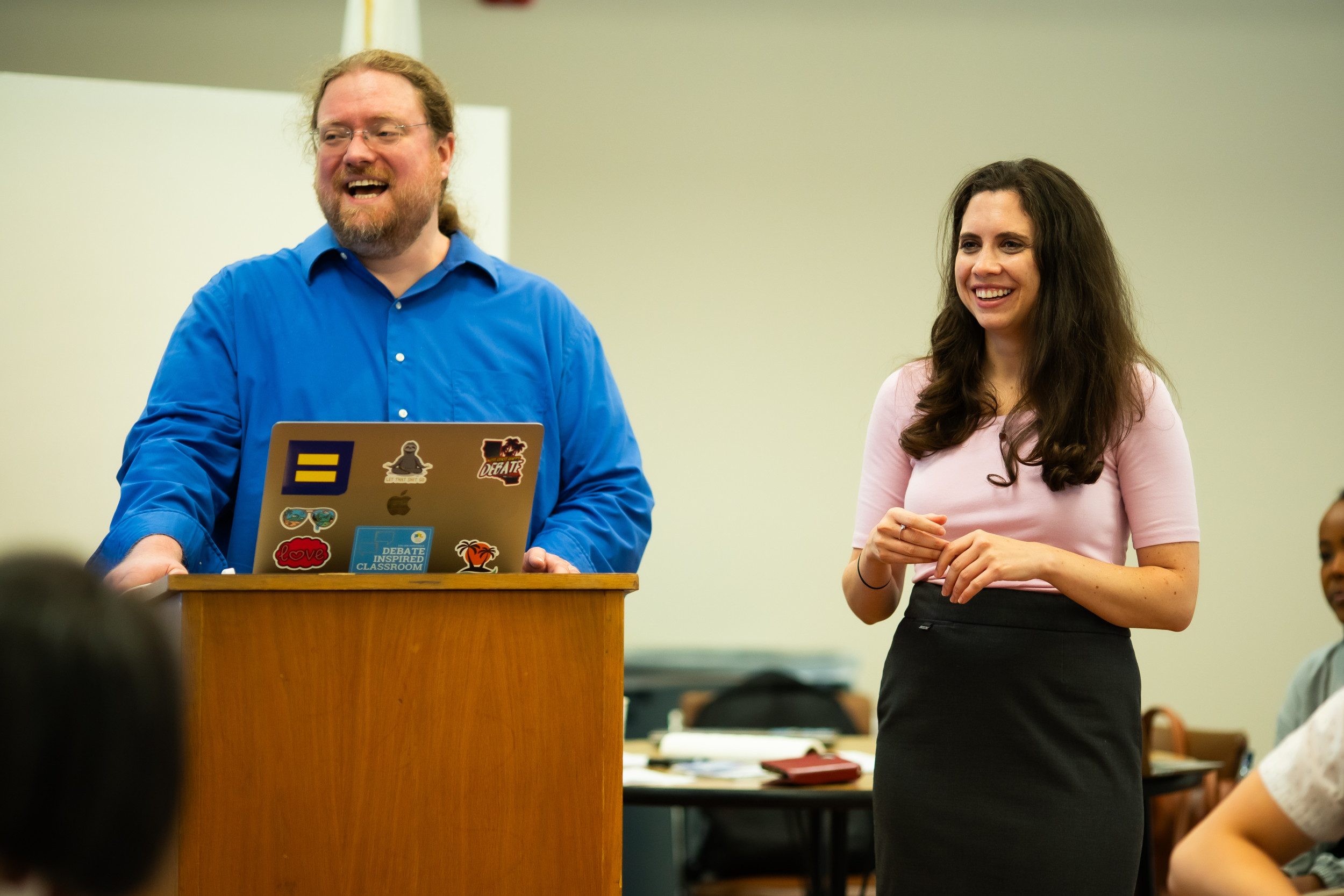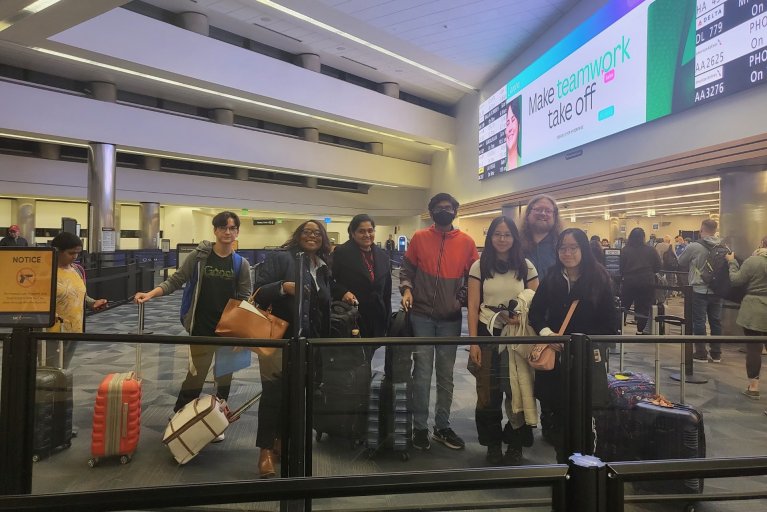Jan 25, 2024 At 02:33 PM EDT
The 2024 presidential election cycle finds Americans deeply polarized, divided not only on hot-button issues like gun control or abortion, but on fundamental questions of democratic legitimacy, such as the trustworthiness of the electoral process itself. Most troubling is how misunderstanding and misrepresentation of the opposing sides drives the distrust.
As Rachel Kleinfeld, senior fellow at the Carnegie Endowment for International Peace, put it in a recent interview with the online journal Discourse, Americans are "forgetting various social skills that you need for democracy."
Social skills include learning to persuade, listening to different sides of an argument, thinking critically and communicating clearly. Citizens gain these social skills in public education. As former Supreme Court Justice Stephen Breyer said in the majority opinion of the 2021 Mahoney Area School District v. B.L. case, "America's public schools are the nurseries of democracy."
Before Breyer, pragmatist philosopher John Dewey had famously noted in his essay entitled "The Need for an Industrial Education in an Industrial Democracy" that, "Democracy has to be born anew every generation, and education is its midwife."
But public education often fails to impart these skills.
In a 2020 article for the education magazine The Learning Curve, Ulrich Boser, a senior fellow at the Center for American Progress, wrote, "Most classrooms contain little practice at argumentation. The common teacher practice...seems to be to have students write summaries or summaries of arguments (rather than make, analyze, or interpret arguments)." Public education has an argument deficit. Most high school and college students don't have sufficient practice in creating, communicating and evaluating evidence-based, reason-backed arguments.
Outside the classroom, this deficit distorts our politics. As New York Times columnist Ezra Kline noted in his 2020 book Why We're Polarized, "Most political media isn't...designed for persuasion. The bulk of opinionated political media is written for the side that already agrees with the author, and most partisan elected officials are tweeting to their supporters, who follow them and fundraise for them, rather than to their critics, who don't." The argument deficit in our schools could potentially feed into a communication deficit in public institutions. People are unable to engage in constructive, collaborative discourse with others who disagree.
The alternative is viewing politics through the lens of power alone, not as a persuasive attempt to build the common good, but rather as naked domination. In a 2016 review of a biography of famed political philosopher Jürgen Habermas, The Nation writer Peter E. Gordon noted that Habermas' philosophy can be boiled down to one principle: "Power alone is not a justification." Gordon wrote that Habermas believed "the only force that can be valid within a democratic system is what he calls 'the unforced force of the better argument.'" Gordon added that sustaining this principle "is what distinguishes democracy from tyranny."
If most citizens lack training and skill in the exchange and evaluation of arguments in the public square, reason-giving naturally gives way to assertions of power and the end of democratic norms. For anyone following the news, this is both a prescient diagnosis—and a warning.
What, then, can be done?
On high school debate teams, students learn to offer claims backed by evidence in respectful and intellectually rigorous conversations. They learn to use persuasive reasoning to demonstrate how evidence supports claims. Students are introduced to the habits of academic discourse as these claims are tested. They are trained to listen to opponents, communicate respectfully and seek truth through "the unforced force of the better argument." These are the social skills that citizens and future leaders will need to sustain democracy.
However, many students do not join these after-school programs. So how can the civic benefits of debate be brought into the school day, to provide teachers across different subjects a toolbox for fostering these skills?
At the Silicon Valley Urban Debate League (SVUDL), program specialists have taken the basic tools used to train debate coaches for competitive success, and with the collaboration and support of our sister affiliate, the Boston Debate League, we have trained 70 teachers already this school year to promote argumentation and debate inside their classrooms using Debate Centered Instruction.
Debate Centered Instruction, a term coined by Brookings fellow Robert Litan to describe a constellation of instructional approaches centered on argumentation, takes the energy of a public debate into the classroom. Students learn to use observation and analysis to craft claims, find evidence and offer reasons why the evidence supports their claims. They develop skills in communication, perspective-taking and critical thinking that are crucial to political participation.
In sessions led by SVUDL, educators are equipped to become philosopher Dewey's "midwives of democracy" by training students in the social skills they will need to participate in the public square. In the fall of 2023, over 1,100 students had an opportunity to engage in Debate Centered Instruction through SVUDL's efforts in English and history, but also in biology, and yes, even math class.
As student agency is centered in the learning process, student interest and engagement correspondingly increase.
One inclusion specialist reported to her colleagues in a schoolwide email after entering a Debate Centered Classroom, "Today...the class participated in the full class debate. All students had a role in their group, and most students had the opportunity to speak in the debate. This turned out to be one of the best, most engaging class periods I have participated in since becoming an inclusion specialist three years ago. I feel lucky to have been there!"
She continued, "Our students...will meet our high expectations (and sometimes even surprise us) when they are given effective support and encouragement."
Urban Debate leagues can be in a position to help reweave the fabric of civil society torn by polarization when they partner with teachers to make public schools true nurseries of democracy. Debate isn't just for after-school teams. It can transform classrooms and our society.
Dr. Burns has been the director of programming at the Silicon Valley Urban Debate League since 2018. Before joining SVUDL, he taught social studies and speech arts at North Star Academy in Newark, New Jersey, and communications studies at Lindenwood University in St. Charles, Missouri.








